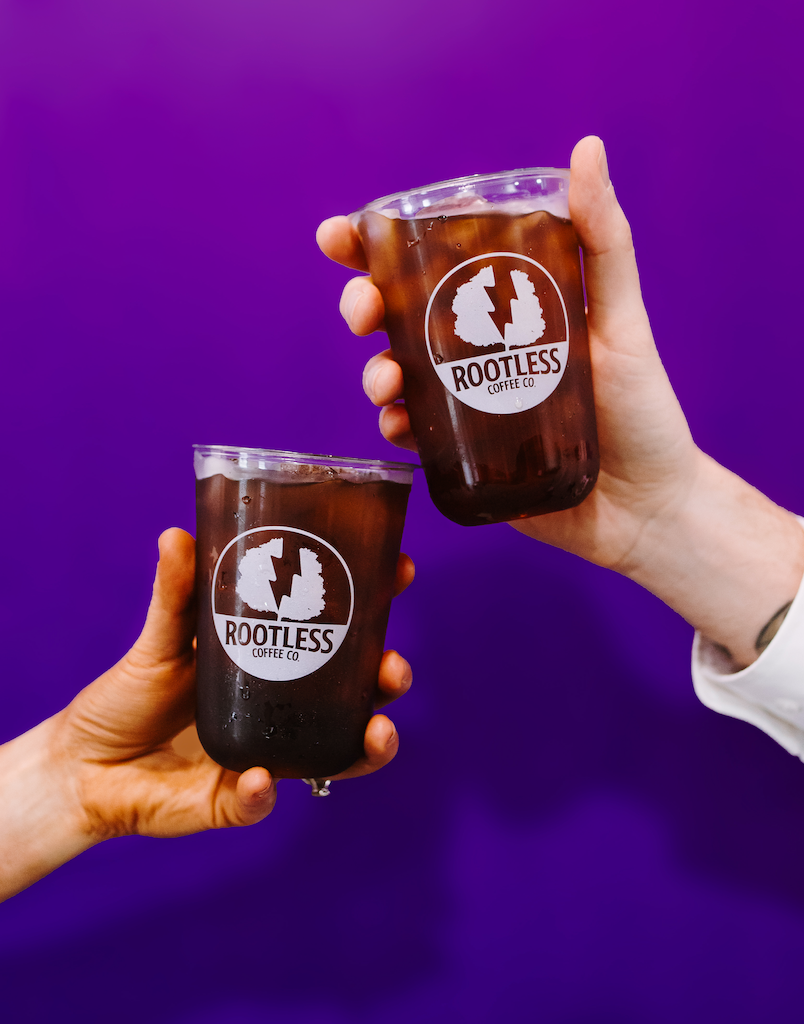
Remember when cold brew suddenly became THE thing? Suddenly, ordering your usual iced coffee started to feel a little… basic.
Is cold brew really that much better? What’s the actual difference?
We know you’re too scared to ask your barista during the morning rush.
While both are served cold and quench your caffeine fix, cold brew and iced coffee vary in brewing methods, flavor, and caffeine levels. Let’s break it down.
What Is Iced Coffee?
Let’s start with the more familiar of the two—iced coffee. To make it easy, iced coffee is brewed hot and then cooled down, typically by pouring it over ice. Here’s how it works:
Brewing Method: Iced coffee is brewed using traditional methods like a drip machine, French press, or pour-over. The coffee is made just like a regular hot cup of joe, but once it’s brewed, it’s chilled or poured over ice.
Time: The key thing about iced coffee is that it’s a quick process. Brew, cool, and drink. It doesn’t take much longer than a typical cup of hot coffee.
Flavor: Because iced coffee is brewed hot, it extracts the oils and acids from the coffee beans more quickly, giving it a slightly more bitter and acidic flavor. The ice can dilute the coffee as it melts, especially if you don’t drink it fast enough.
Caffeine Content: Iced coffee generally has a similar caffeine content to its hot counterpart. Since it’s brewed hot, the caffeine extraction remains the same—though some dilution from ice is possible.
Best For: Iced coffee is ideal if you want a fast and simple cold coffee. It’s perfect for those who like their coffee with a lighter, quicker brew, or if you’re making a pot at home and want to chill it for later.
What Is Cold Brew?
Cold brew, on the other hand, is a whole different beast. This method takes time, patience, and a little planning. But for many coffee lovers, it’s worth the wait.
Brewing Method: Cold brew is made by steeping coarsely ground coffee beans in cold water for an extended period of time, typically 12 to 24 hours. Unlike iced coffee, cold brew never touches hot water during the brewing process. Once the coffee has steeped, the grounds are filtered out, leaving behind a smooth, concentrated brew.
Time: Cold brew requires a lot more time and forethought. The long steeping process can take anywhere from half a day to a full 24 hours, depending on how strong you want it. It’s not something you can make on the fly, but if you’re willing to plan ahead, it pays off.
Flavor: The magic of cold brew lies in its flavor. Because it’s steeped in cold water, the coffee extracts more slowly, which results in a smoother, less acidic brew. You get a mellow, rich flavor with subtle sweetness and none of the bitterness associated with hot coffee.
Caffeine Content: Cold brew is often much stronger than iced coffee. Because it’s brewed as a concentrate, it typically contains more caffeine per ounce. Many people dilute their cold brew with water or milk, but even then, it can pack a more powerful punch than your average iced coffee.
Best For: Cold brew is perfect for those who love smooth, low-acid coffee and don’t mind a little prep time. If you’re someone who likes to have coffee ready to go for the week, making a batch of cold brew is a great option—it stores well in the fridge for several days.
Which One Should You Choose?
So, which is better—cold brew or iced coffee? Well, that depends on what you’re looking for in your coffee.
If you’re in a hurry or enjoy a more traditional coffee flavor, iced coffee might be your go-to. It’s easy to make, quick to brew, and a perfect way to enjoy your regular coffee chilled. Plus, if you like experimenting with different flavors or adding syrups, iced coffee offers a great base.
On the other hand, if you’re after a smoother, richer experience with lower acidity, cold brew is your new best friend. It’s perfect for those who want to savor their coffee and don’t mind investing a bit of time in the brewing process. Cold brew is also ideal if you want a strong, long-lasting concentrate that can be stored in the fridge and enjoyed over several days.
Cold brew and iced coffee offer entirely different coffee experiences. At the end of the day, it all comes down to personal preference, so give them each a shot and see what works best for you.
